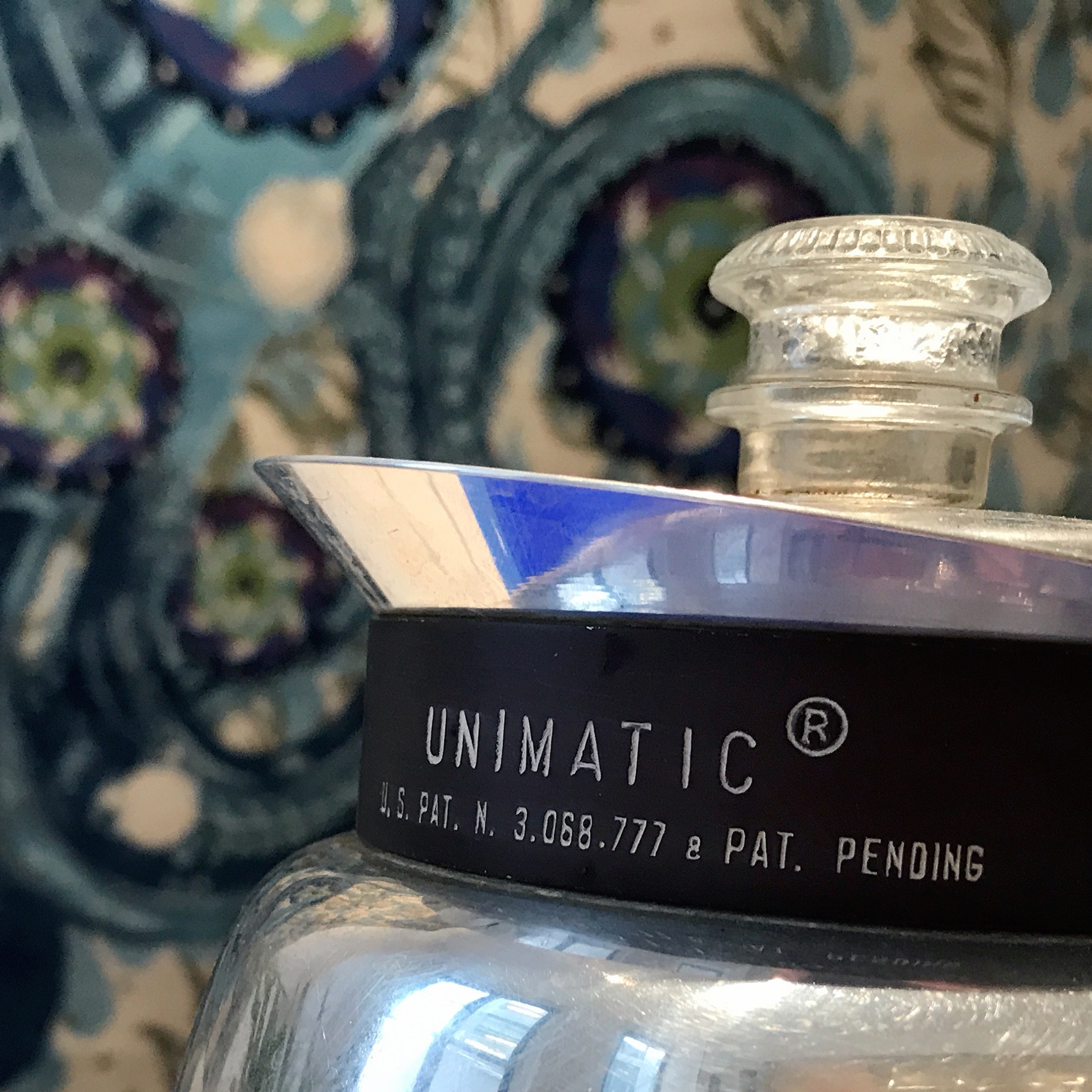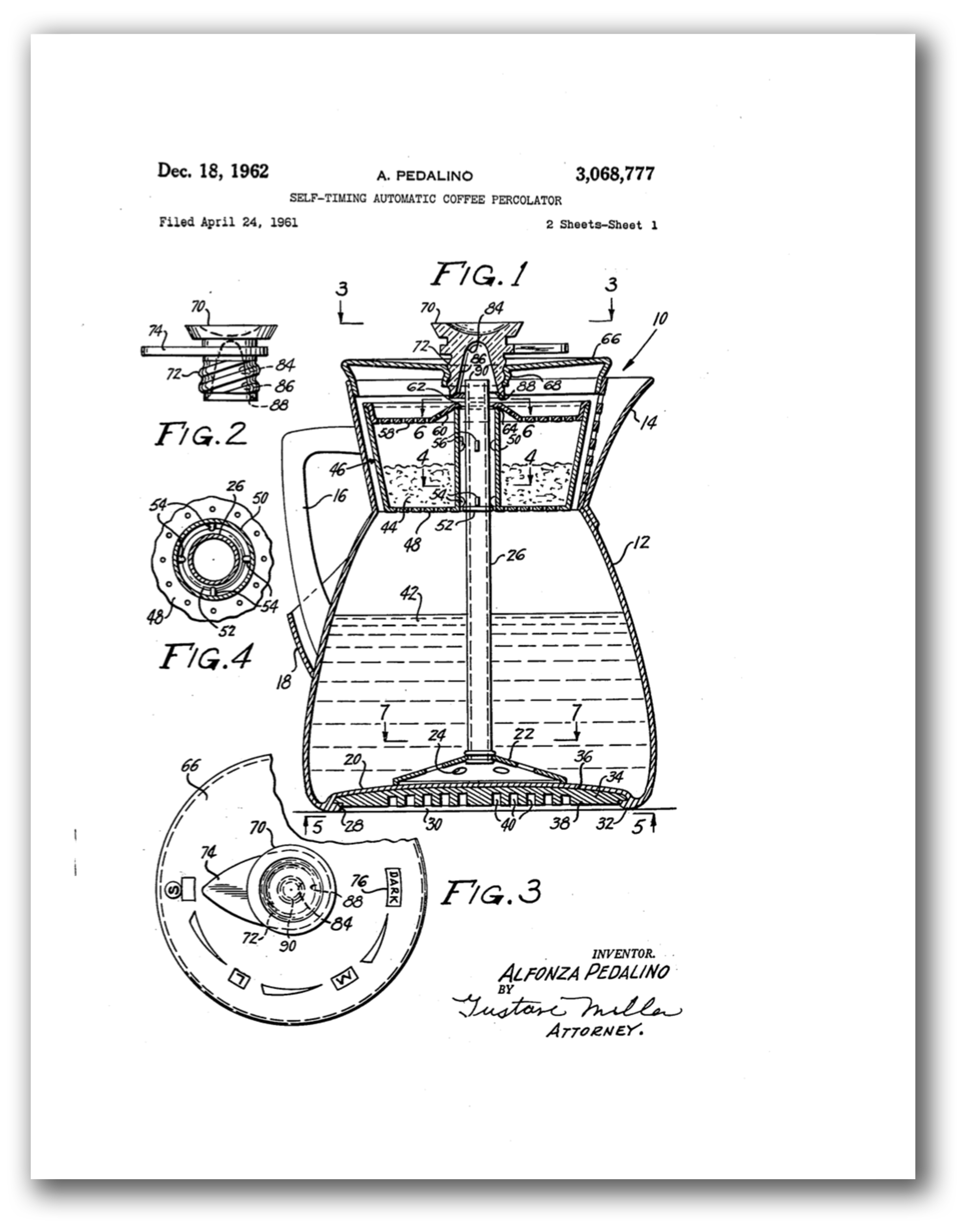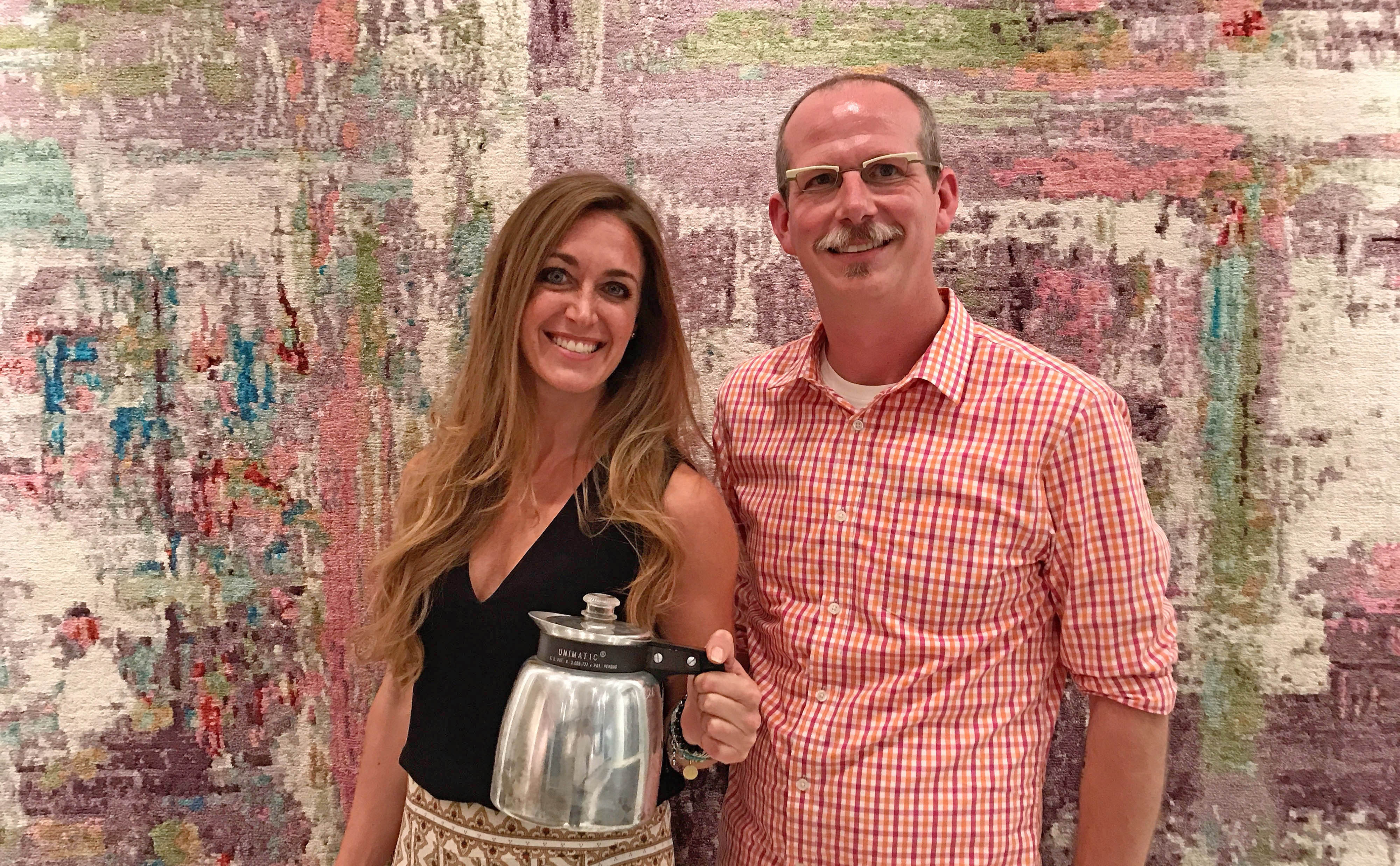It began innocently enough as I was preparing in May of 2018 to travel to Portland, Oregon to observe and document the making of ‘Intimacy Portland,’ a joint project between Christiane Millinger Handmade Rugs and Rug Star by Jürgen Dahlmanns. I was conducting field research for the article and eventual presentation ‘Inside Intimacy Portland‘ for Rug Insider Magazine and – as one did in 2018 and still does in 2020 – I was browsing the titles available for download on Netflix; plane travel after all can be notoriously monotonous. One documentary quickly caught my attention: ‘Coffee for All,’ or ‘Caffè Sospeso’ as originally titled. I downloaded it partially out of sincere interest, partially out of the serendipitous nature of traveling to a renown coffee mecca: Portland, Oregon. The short film proved to be the entrée which has refocused my life.
My love of coffee is already tangentially tied to The Ruggist by way of the ‘Over Coffee‘ series of interviews. Originally intended as a candid interview series in which I talk with people from throughout the rug industry while, wait for it, having a cup of coffee, the series has featured a respectable cadre of luminaries from throughout the rug and carpet industry. It was supposed to be fun and personally insightful, but as the series progressed and more commercial concerns permeated both myself and The Ruggist, it morphed from the intended into something more akin to just another fluffy marketing article promoting a brand. The antithesis of what I had intended. But, I digress.
One vignette in ‘Coffee for All’ highlights the Caffè Unimatic as presently sold by Elisabeth Cardiello. Cardiello is not by professional training a coffee impresario but her story of finding a literal warehouse full of the Unimatic certainly piqued my interest. That, in sum with the balance of the film’s vignettes yields a largesse of human compassion and understanding hard to ignore or remained unmoved by. I was enchanted.

And so it was that upon my return from Portland that I sat down at my desk on 19 May 2018 to inquire about the possibility of an interview with Cardiello, writing in part, ‘While I know not if Elisabeth knows much of the world of handmade rugs, I think we both share an affinity for the power of casual conversation.’ After a canceled trip, some schedule juggling, and a sinking feeling of opportunity perhaps lost, my desire was fulfilled on 6 September 2019 when I met Cardiello for a coffee – brewed on the Unimatic of course – in the delightful and visually inspiring showroom of Jan Kath in New York City.
Unlike previous iterations of ‘Over Coffee’ however this instalment does not feature an interview with Cardiello. While that was the intent, this encounter returns squarely to the original impetus for ‘Over Coffee’ insomuch that it embraces the ‘whatever comes of the conversation while drinking coffee’ ideal I had sought to employ before being slightly sullied by more commercial concerns. This is the refreshing nature of the conversation with Cardiello; neither of us were selling anything to one another. How freeing that is for the unbridled exploration of thought, purpose, and dare one say the exploration of the meaning of it all. This is the takeaway of the resulting brave conversation over coffee.
Location: Jan Kath Showroom, New York City, United States
Time and Date: 10:09 (10:09 AM), Friday, 6 September 2019
Note Bene: Coffee is the perfect medium to foster brave (and necessary) conversations!
Elisabeth Cardiello is a polymath and an inspiration; we all know someone like her. Only child, high achiever, by outward appearances adroit at anything she decides to put her mind to. She graduated number one in her class. The kind of person who embodies the mantra of her father, ‘What the mind can conceive, the mind can achieve.’ She’s also human, with the very same foibles we all struggle with. In 2010 fate delivered Cardiello the first hit of a one-two punch of catastrophy which caused her to question the fabric of her reality, the importance of life and work, and our apparently innate human characteristic of avoiding the unpleasant. She had no choice and it thus inspired what was to come.
On 30 September 2010 Cardiello’s father Peter Cardiello passed away. He had been Elisabeth’s rock and constant cheerleader. ‘I could ask my dad anything and trust the answer,’ said Cardiello of her father. Himself a consummate businessman – he gave Elisabeth her first business card at age six (6)!! – he had dabbled extensively in a variety of businesses throughout his career. This included the Unimatic which was patented in 1962, yet at the time of his death the younger Cardiello knew nothing of what the amazing machine was about to do to her life.
Then in late October 2012 Superstorm Sandy impacted the shores of New York state, the accompanying storm surge flooded the Cardiello family home. Now not only was the young Cardiello adrift without her ever guiding father, but her refuge, her place of comfort and respite was in shambles. These two events then galvanized in her a desire to change course, to be brave, to deal with the things that required attention. The recently discovered warehouse full of original, new-in-box, 1960s Unimatics, being one such item.
‘I was still dealing with the loss of my father when our family home was hit by Sandy,’ said Cardiello as we enjoyed a cup of coffee brewed on the Unimatic, who continued. ‘We were dealing with all of the financial details of my father’s business interests. This included the warehouse full, full of this coffee maker.’ She concludes somewhat rhetorically, ‘Who keeps things like that?’
Fortunately Cardiello’s professional training is in finance and so the numbers were easy for her to sort. More challenging however was what to do with a sizeable supply of esoteric percolating coffee makers from a bygone era. ‘We had to sit down and have these conversations about what to do. They were always with a cup of coffee,’ said Cardiello somewhat presciently. Her later epiphany regarding the nature of talking over coffee would reshape her career, her life, and I believe, the lives of countless others – this writer included.
Thus was re-born the Caffè Unimatic.
The Unimatic is, for ease of explanation, a coffee percolator. Yes! A percolator. For the coffee aficionados reading this thinking ‘Isn’t a percolator the best way to make a large quantity of really bad coffee?’ I answer with a resounding ‘Yes! But this is not your grandmother’s percolator.’ I mean it could have been given the age of the device, but I digress again. While technically a percolator, the Unimatic’s patented water heating, control, and delivery system elevates it above the fray by solving the taste problem of the more readily known models of percolators frequently seen at say bad hotel buffet breakfasts and airport convention centres, namely that of over-brewing. Typically a percolator works by flowing heated water through coffee grounds, over, and over, and over, and over, and over again until someone with enough sense turns the machine off. This results in over-brewed, over-extracted coffee. Hello warm brown water.

The Unimatic however solves that problem by brewing the entire pot of coffee for only seven (7) minutes – the optimum brew time as determined by the folks who invented the device. In short, water is only allowed to flow through the coffee once it is heated and then – due to the laws of thermodynamics – once sufficient heat has dissipated from the Unimatic it simply stops brewing. Residual heat in the embedded stone thermal mass in the base then keeps the coffee warm and drinkable. There are more steps of course, but in summary that is how the Unimatic works. Full instructions come with the device which can be purchased in limited edition here. And for the record, it brews delicious, very palatable, drinkable coffee. It’s on my 2020 purchase list.
Please note Cardiello prefers that when pouring coffee that one hand is on the handle while the index finger of the opposite hand holds the glass valve on the lid. This is not required, but it is how Cardiello’s mother always pours from the Unimatic and so in following suit one honours the family and connections that have brought this coffee maker back to market.
Cardiello had been so gracious as to bring the Unimatic to the showroom of Jan Kath so that we could enjoy conversation and coffee. My friend Kyle Clarkson who – in partnership with Jan Kath – operates the showroom was most kind in allowing me to host my guest in his conference room; after all, it allowed me to introduce Cardiello to rugs as she introduced me to the Unimatic. We discovered similarities between coffee and rugs – as artisanal products competing with non-artisanal versions – as I discovered that much of my recent listlessness related to rugs and carpets stems from the fact that I began demurring from the brave conversations so required of our industry. That was my epiphany and I wish to publicly thank (Or is that blame?) Cardiello for fostering this reflection.
But what now and what of a refocused professional life?
Foremost is a revisit of the origins of The Ruggist as blog, as hobby, as nom de plume, and now as persona in its own right and moreover what that has to do with brave conversations – over coffee, with beer, or otherwise.

For those who avidly read my work, it may already be apparent that I’m rethinking and reïmagining what it means to be a commentator, observer, et cetera of rugs and carpets. Increasingly I’m asking questions the rug and carpet industry cares not to have asked, and I’m focusing interest on the things that truly need our attention – at least from my perspective. I’ve an outsized love/hate relationship with marketing and advertising and I’m tired of the blatant lies told by industry as well as shopkeepers, of all manner, as they peddle rugs and carpets. Lies told about materials, lies told about technique, lies told about any segment of the supply chain. From raw materials through to the delivery of the finished rug and carpet into the home of a client, I see the lies and mistruths told by those we allow to do so, only adding further insult to the already fragile nature of handwork in the early twenty-first century. It has to stop and it stops by all of us asking questions and demanding the truthful answers.
Additionally it means a willingness to discuss topics I find distasteful; ones that require bravery on my part for they reveal my own character flaws, weaknesses, and faults – fwew! there are many! It also means I, you, the industry – whatever that means – must be willing to have brave conversations which reveal the truth and not just the hype beneficial solely to business and the bottom line. In an age that supposedly espouses transparency, there is a great lack of it within the rug and carpet trade. In the context of this article, the same can be said of the coffee trade and – I’m postulating – pretty much any business concern on the planet.
Transparency isn’t just a clever marketing or management phrase used to placate the masses… . Okay, okay, okay, maybe that is what it is, but that is not what it should be. Transparency requires telling it ‘like it is’ and accepting that as reality, even if that bitter reality is a little hard to palate. Yes there are countless problems within the handknotted rug and carpet industry but there are also innumerable positives. Highlighting only the positive, or posting misidentified in-process photographs of rugs being made as but one example, however does not bring transparency to the problems, rather it masks them out of fear of lost business. I’m here to say that if reality will cause your business to fail, then it simply deserves to fail. Those who understand not only this, but the contrary, that reality allows one to prosper, are the businesses I am now choosing to support and praise.
This reminds me of a visit to Birmingham, Alabama in May 2019 during which I listened to Scott Kravet of Kravet, Inc. give a presentation. While showing a seemingly endless assortment of new fabrics encompassing widely disparate price points and qualities he was asked – by another audience member – about viscose. He spoke frankly of the fibre’s limitations and applications stating it was great for fabric before adding, ‘…but it’s not good for a carpet unless it is placed a decorative room you never go in.’
That is what it means to have a brave conversation (over coffee). Why don’t you have one this year and see what good can come of it; I’m always willing to have a good cup of coffee as we discus the future of weaving.




